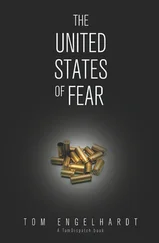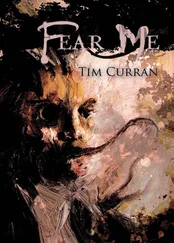Springtime came early that year. Mr. Passmore brought him to a chair maker on Second Street, a friend of the abolitionist cause, who let Henry work for several weeks, cleaning up and doing some finishing work. With the money he made there he moved out of the Passmores’ house — they had offered to keep him on as a servant, but he declined. Sam had told him about Bottle Alley, which was run by a friend of Sam’s named Zena.
When he arrived in Bottle Alley, Henry felt more comfortable. All the occupants were Negroes, for one thing. There was an open courtyard, hidden from street view, with a dirt floor and a pump for water. There were chickens walking around and always at least a couple of occupants sitting on a bench, making conversation. Jerome was a regular fixture — a dark-skinned man with perpetually red eyes who smelled of whiskey. When Henry said hello to him the first time and asked him how he was, he replied, “Still a nigger,” which was how he replied every time he was asked. Zena did laundry and cooking out there as well, a large-boned, very black woman with a vicious-looking scar down the left cheekbone that continued down her neck to her collarbone. She wore a wooden whistle on a leather cord around her neck. Zena was matter-of-fact about everything, stood for no nonsense from anyone, but she was honest, and Henry liked her. He asked her if it was all right if he played his banjo in the evenings, and she had looked at him as if he were crazy.
“Go on play your banjo,” she said, frowning as if he were trying to put something over on her. “I don’t give a God damn, and if anybody doesn’t like it tell them to see me.” She surprised Henry, a few days later, as he was passing through the courtyard on his way somewhere, by asking with characteristic abruptness, “What song was that you was just playing?”
“The last one?” Henry had said. “That was ‘Black Betty.’ You like that one?”
“‘Black Betty,’” she said, as if memorizing instructions. Then, “Why else I ask you if I didn’t like it?”
People kept to themselves in Bottle Alley. No one asked where you came from or why you were there or where you were going, and that suited Henry fine. His room had no lock, nor even a knob or latch; only a crude hook-and-eye to keep the door shut while he was out. No one there had much of anything, and theft was not a problem. With the dirt floor and the scrawny tree, the chickens Zena kept, it all reminded him of The Tides, but in a pleasant way, as if Master James weren’t a part of it. A little patch of the country in the middle of the city. The easy comfort of other black folks.
Outside, on the streets, he was invisible. No one saw you unless you gave them a reason to see you. You could watch people going about their business, study their faces as if you were a ghost. That was something you could use to your advantage. Even as he realized this, he was beginning to need something more. The one good thing about The Tides was the opportunity to perform, to be seen and admired. He wanted that now, as he became used to Philadelphia. He wanted to see where it could lead. Slowly at first, testing, he began spying out likely places to perform. Playing for the parties at The Tides had taught him how to make people laugh, make them dance, make them wistful. Twice he had gone as a valet with Stephens to Richmond and watched very closely at the musicales they had attended. And he had seen traveling shows, and there had been a hand who worked at The Tides for a few months, and of course, the few things Enoch had taught him. He learned quickly, and he remembered what he had learned.
He found a spot near the foot of Chesnut Street by the Black Horse Tavern and, later, one down by Spruce Street, and another at the top of Callowhill. Each one offered nearby alleys and other possible escape routes should trouble appear.
Playing on the street was an education in what people wanted, what they expected, and the range of responses when you subverted those expectations. What kept their attention and what did not, and what kind of attention you wanted. There was power that came, like magic, when you performed. Time expanded, changed shape, slowed down so that once he cast the spell he could move, unseen, while his listeners sat, bound by the illusion he spun, as if they were listening to someone else. You had to divide yourself. First there was one of you and many of them; then there was one of them, and many of you. At the same time, you kept something private that nobody could see or touch. It was a way to live. He knew that this power could end up being a vulnerability, as if he were daring the world to call him by his right name.
And now, this James Douglass. He didn’t ask Henry too many questions, and that was a good thing. At certain moments, Henry found himself relaxing with him, enjoying a joke or sharing some observation; then he’d pull himself back, as if he had fallen asleep while riding a horse. You could never take off the mask.
And there was the girl. One day he thought he saw her, walking on the street, and he followed until she stepped into a doorway between two shops on Walnut Street. He could not follow her inside, of course, but in his mind he did. All afternoon he followed her in his mind. Was that where she was “kept”? Where she let the fiddler have his way? He wanted her to see him, think about him, watch him. He was tired of being invisible. In a short time, he would perform onstage, in a real theater. It was nobody’s idea of what he was, or what he would do. You were free as long as you chose your own mask. The more masks, the better. He would not be one more of everybody, subject to the same vanishing. He would not vanish.
Rose and I both arrived early on the night of the performance to make sure that all was in order. There was a service entrance around back of the theater, and I told Henry to come in that way around five thirty, so there would be no chance of his being seen and stopped. Rose had outdone herself with Henry’s costume. It was worthy of Sweeney. She got the idea perfectly. She had whipped up a confection of long, silver-and-green-striped satin breeches, a white shirt with enormous green dots, a red bow tie, and an orange plaid jacket that was intentionally too large, but with the sleeves shortened so as not to interfere with his banjo playing. I had described Sweeney’s top hat, and she had replicated that as well.
I paced restlessly, running through the scenarios over and over. Rose and I had gotten everything necessary laid out in her workroom. I imported a jar of blacking from the troupe’s sanctum, along with a wig and some other items; we would make Henry up in Rose’s room, before the members of the troupe arrived, so I could present him as a fait accompli.
As five thirty drew near, I walked back and forth, through the area where we stored some unused sets and drops, double-checking to make certain that the rear entrance was open. Just after the half-hour struck, Henry rounded the edge of a building into the alley that led to the rear entrance. He carried his banjo in its sack, and he wore a cloth jacket with the collar turned up and a wool cap pulled low on his forehead, a somewhat dramatic touch. Henry, like Rose, had a faculty for the theatrical in everyday life. I ushered him in and closed the door.
“Are you ready?” I said, as we made our way through the lost harbor of stage sets back toward Rose’s room.
“Yes,” he said. He was otherwise quiet as we walked, and it seemed to me that he was holding something very close inside. I couldn’t imagine what was going through his mind. I was silently running through a list of other details myself, hoping that the reporter from the Bee would be there; I had tipped him off that we had a new attraction that I thought he might enjoy.
Читать дальше










